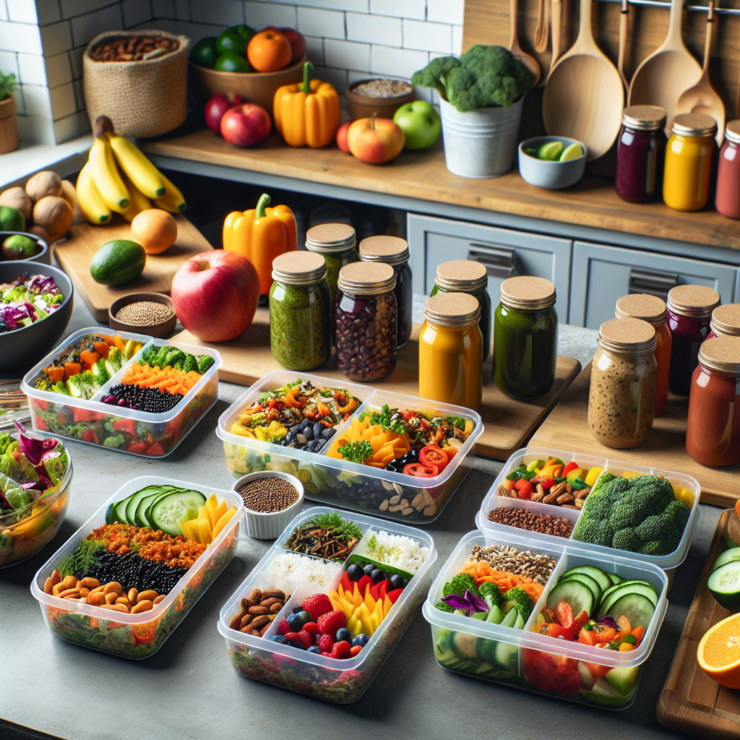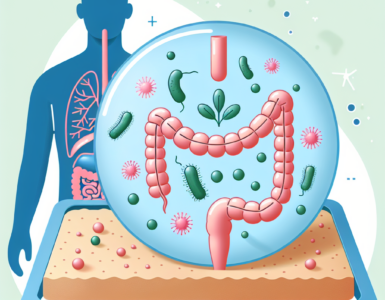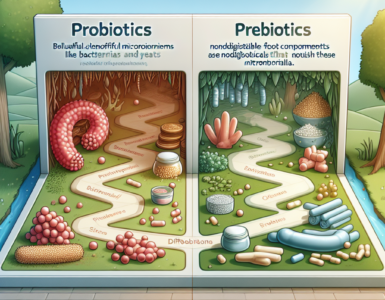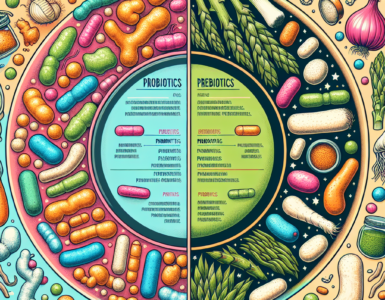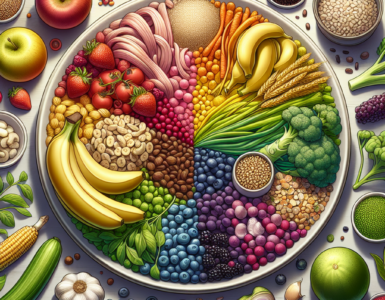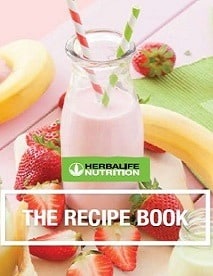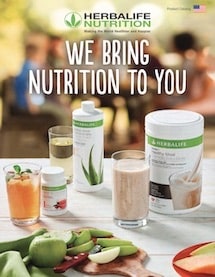The Benefits of Vegan Meal Prep
Embracing vegan meal prep is more than just a culinary choice; it’s a lifestyle decision that offers an array of benefits. From streamlining the weekly cooking process to making a positive impact on the planet, vegan meal prep is a strategy that aligns with both personal and environmental well-being.
Saving Time and Reducing Stress
Meal prep is a time-honored strategy for those with busy schedules. By dedicating a few hours to prepare meals for the week, individuals can save time on a daily basis. Instead of facing the recurring question of what to eat, one can simply reach for a pre-prepared plant-based meal. This approach reduces stress and decision fatigue, providing more time to focus on other activities throughout the week.
Vegan meal prep also simplifies grocery shopping. With a clear plan in place, individuals can purchase exactly what they need, minimizing waste and avoiding last-minute shopping trips. Here’s how weekly time savings might look for someone who adopts vegan meal prep:
| Activity | Time Without Meal Prep (hrs) | Time With Meal Prep (hrs) |
|---|---|---|
| Daily Cooking | 7-10 | 0-1 |
| Grocery Shopping | 2-3 | 1 |
Aligning With Sustainable Practices
Vegan meal prep not only supports personal health and time management but also promotes sustainability. Plant-based diets are associated with a lower carbon footprint compared to diets that include animal products. By preparing vegan meals in advance, individuals contribute to the reduction of greenhouse gas emissions, deforestation, and water usage inherent in animal farming.
Additionally, meal prepping encourages the use of whole, unprocessed ingredients, which typically require less packaging and are less resource-intensive to produce. By purchasing in bulk and focusing on seasonal produce, individuals can further reduce their environmental impact. The table below outlines the potential environmental savings of a plant-based diet over a standard diet:
| Environmental Factor | Standard Diet Impact | Plant-Based Diet Impact |
|---|---|---|
| Water Use | High | Low |
| Greenhouse Gas Emissions | High | Reduced |
| Land Usage | More land for animal agriculture | Less land due to efficient crop production |
Vegan meal prep is a powerful tool that can help individuals streamline their lifestyle, reduce their ecological footprint, and enjoy nutritious, plant-powered meals with ease.
Key Components of a Balanced Vegan Meal
Creating a balanced vegan meal involves a variety of components to ensure nutritional needs are met. Key elements include protein, whole grains and legumes, fruits and vegetables, and healthy fats. Each plays a pivotal role in maintaining a well-rounded diet.
Protein Sources in Vegan Diets
Protein is crucial for muscle repair, immune function, and overall health. Vegan diets can provide ample protein through a variety of plant-based sources.
| Protein Source | Protein Content |
|---|---|
| Lentils (1 cup cooked) | 18g |
| Chickpeas (1 cup cooked) | 15g |
| Tofu (100g) | 8g |
| Quinoa (1 cup cooked) | 8g |
| Almonds (1 oz) | 6g |
| Chia Seeds (2 tbsp) | 4g |
Incorporating Whole Grains and Legumes
Whole grains and legumes are not only rich in protein but also essential nutrients and fiber which are important for digestion and heart health.
| Whole Grain/Legume | Benefit |
|---|---|
| Brown Rice | Rich in fiber |
| Quinoa | Complete protein |
| Lentils | Iron and potassium |
| Chickpeas | Versatile protein source |
| Black Beans | Magnesium and antioxidants |
Importance of Fruits and Vegetables
Fruits and vegetables are the cornerstone of any diet, providing vitamins, minerals, and phytonutrients essential for health and vitality.
| Fruit/Vegetable | Nutrients |
|---|---|
| Kale | Vitamins A, C, K |
| Blueberries | Antioxidants |
| Apples | Fiber and Vitamin C |
| Sweet Potatoes | Vitamin A and Potassium |
| Spinach | Iron and Calcium |
Healthy Fats for Vegan Meal Prep
Healthy fats are essential for brain health, energy, and absorption of fat-soluble vitamins. They can be easily integrated into vegan meals.
| Fat Source | Benefits |
|---|---|
| Avocado | Monounsaturated fats |
| Chia Seeds | Omega-3 fatty acids |
| Walnuts | ALA (alpha-linolenic acid) |
| Flaxseeds | Fiber and Omega-3s |
| Olive Oil | Heart-healthy fats |
Incorporating these key components ensures that vegan meal prep ideas are not only quick and delicious but also nutritionally complete. Balancing these elements provides the body with the necessary fuel and nutrients to thrive on a plant-based diet.
Planning Your Vegan Meal Prep
Preparing meals ahead of time can be a game-changer for those embracing a vegan lifestyle. It not only streamlines the process of maintaining a plant-based diet but also ensures that every meal is balanced and nutritious. Below are strategies for setting goals, creating meal plans, and shopping for ingredients that align with vegan values.
Setting Your Meal Prep Goals
Before diving into meal prep, it’s crucial to outline your objectives. Are you aiming to save time during busy workdays, cut down on food costs, or ensure you’re eating a variety of nutrients? Perhaps you’re looking to accomplish all three. Identifying clear goals will guide the meal prep process and help you stay focused on your dietary aspirations.
| Goal | Description |
|---|---|
| Time-saving | Prepare meals in advance to minimize cooking on busy days. |
| Cost-effective | Plan meals around affordable, seasonal produce and bulk-buy items. |
| Nutritional balance | Ensure each meal contains a variety of nutrients essential for health. |
| Sustainability | Use environmentally-friendly practices in meal prep and cooking. |
Creating a Balanced Meal Plan
A balanced vegan meal plan should include a variety of foods to provide a wide range of essential nutrients. This means incorporating protein sources such as legumes and tofu, whole grains like quinoa and brown rice, a colorful array of fruits and vegetables, and healthy fats from nuts, seeds, and avocados.
When crafting your meal plan, consider the following components for each meal:
| Meal Component | Examples |
|---|---|
| Protein | Beans, lentils, chickpeas, tofu, tempeh |
| Whole Grains | Quinoa, brown rice, whole wheat pasta, barley |
| Fruits and Vegetables | Leafy greens, berries, apples, carrots, bell peppers |
| Healthy Fats | Avocado, olive oil, almonds, flaxseeds |
Aim for variety throughout the week to keep your meals interesting and to ensure you’re getting a wide range of nutrients.
Shopping Tips for Plant-Based Ingredients
When shopping for vegan ingredients, focus on whole, unprocessed foods. Here are some tips to help you navigate the grocery store and make the most out of your shopping trips:
- Buy in Bulk: Grains, legumes, and nuts can be bought in bulk, saving money and reducing packaging waste.
- Choose Seasonal Produce: Opt for fruits and vegetables that are in season; they are often more affordable and flavorful.
- Read Labels Carefully: Look for hidden non-vegan ingredients and additives in packaged foods.
- Plan Around Sales: Check store flyers for sales on plant-based staples and stock up when prices are low.
A well-thought-out shopping strategy not only aligns with sustainable practices but also ensures that your pantry is stocked with everything you need for your vegan meal prep. With these tips in mind, you can create a shopping list that is both cost-effective and conducive to a nutritious diet.
Quick and Delicious Vegan Meal Prep Ideas
For those who embrace a plant-based lifestyle, having quick and delicious vegan meal prep ideas up your sleeve is a game-changer. These meal prep ideas not only save time but also ensure that you have nutritious and tasty vegan options readily available.
One-Pot Wonders
One-pot meals are the epitome of simplicity and convenience. They require minimal kitchen equipment and result in fewer dishes to clean up afterward. For a balanced vegan one-pot meal, focus on including a variety of protein sources, such as beans or tofu, with an array of vegetables and a base of whole grains like quinoa or brown rice.
Here are some one-pot meal combinations:
- Black beans, sweet potatoes, kale, and quinoa
- Chickpeas, tomatoes, spinach, and whole wheat pasta
- Lentils, carrots, bell peppers, and barley
Sheet Pan Meals
Sheet pan meals involve roasting or baking a combination of ingredients on a single baking sheet. This method not only allows for the flavors to meld together beautifully but also offers a hands-off approach to cooking, freeing up time for other activities while your meal cooks in the oven.
Examples of sheet pan meals include:
- Roasted chickpeas, broccoli, and red onions over brown rice
- Baked tofu, asparagus, and cherry tomatoes served with wild rice
- Sweet potato cubes, black beans, and red peppers topped with avocado
No-Cook Vegan Meals
No-cook meals are perfect for those hot days when turning on the stove or oven is less desirable. They are also incredibly fast to prepare. Focus on fresh produce, soaked or canned legumes, and cold grains or noodles to create satisfying meals without the need for heat.
Some no-cook meal ideas:
- Canned chickpea salad with cucumbers, tomatoes, and a lemon-tahini dressing
- Cold soba noodle bowl with edamame, shredded carrots, and a peanut sauce
- Quinoa tabbouleh with fresh parsley, mint, tomatoes, and a lemon-olive oil dressing
Slow-Cooker Staples
The slow cooker is a fantastic tool for meal prep, as it does the work for you, slowly simmering ingredients to perfection with minimal supervision. It’s ideal for creating stews, soups, and chilis that can provide several meals throughout the week.
Slow-cooker recipes that work well for vegan meal prep:
- Vegan chili with kidney beans, black beans, corn, and quinoa
- Lentil stew with diced tomatoes, carrots, celery, and herbs
- Vegetable curry with chickpeas, potatoes, peas, and coconut milk
When incorporating these vegan meal prep ideas into your routine, consider the nutritional balance and variety to keep your meals exciting and healthful. With these options, you can effortlessly create plant-powered meals that align with sustainable eating practices and cater to your busy lifestyle.
Prepping and Storing Your Vegan Meals
Proper preparation and storage of vegan meals are key to maintaining freshness, ensuring food safety, and preserving nutrients. By following best practices for food safety, storing meals efficiently, and reheating with care, individuals can enjoy their vegan meal prep ideas throughout the week without compromise.
Best Practices for Food Safety
When preparing vegan meals, it’s vital to follow food safety guidelines to prevent contamination and foodborne illnesses. Always start with clean hands, utensils, and surfaces. Rinse fruits and vegetables thoroughly, and be mindful of the risk of cross-contamination, even with plant-based ingredients.
| Task | Food Safety Tip |
|---|---|
| Cleaning | Use hot, soapy water to clean surfaces and utensils. |
| Rinsing Produce | Rinse under running water rather than soaking. |
| Separation | Keep different types of produce separate to avoid cross-contamination. |
| Cooking | Ensure grains and legumes are cooked to the proper temperature. |
Storage Tips for Freshness
To keep your vegan meals fresh and tasty, proper storage is essential. Use airtight containers and be mindful of the refrigerator’s temperature, keeping it at or below 40°F (4°C). Store different components of meals separately when possible, such as dressings or toppings, to prevent sogginess.
| Food Item | Storage Method |
|---|---|
| Cooked Grains | Airtight container, refrigerated |
| Chopped Vegetables | Crisper drawer with humidity control |
| Prepared Sauces | Sealed containers, refrigerated |
| Cooked Legumes | Airtight container, refrigerated |
Reheating Without Losing Nutrients
Reheating meals can lead to nutrient loss, especially in delicate vegetables. To minimize this, reheat only the portion you plan to eat and use methods that retain moisture, such as steaming or microwaving with a splash of water. Avoid overheating, as this can further degrade nutrient content.
| Reheating Method | Tips |
|---|---|
| Microwave | Add a little water and cover to steam. |
| Stovetop | Use low heat and a covered pan. |
| Oven | Reheat at a low temperature to avoid drying out food. |
By adhering to these practices, you can ensure that your vegan meal prep ideas remain safe, fresh, and nutritious from the time of preparation through to consumption. These guidelines are crucial for anyone looking to maintain a healthy and sustainable plant-based diet.
Time-Saving Tips for Vegan Meal Prep
Crafting a plant-based eating routine doesn’t have to consume your schedule. With these time-saving strategies, individuals can prepare nourishing vegan meals quickly and efficiently.
Batch Cooking Fundamentals
Batch cooking is a cornerstone of efficient meal preparation. By cooking larger quantities of staple foods at once, one can save time and energy throughout the week. Focus on versatile ingredients that can be mixed and matched in different recipes.
| Ingredient | Cooked Quantity | Potential Uses |
|---|---|---|
| Quinoa | 3 cups | Salads, Stir-fries, Breakfast Bowls |
| Chickpeas | 4 cups | Hummus, Curries, Salads |
| Roasted Vegetables | 2 trays | Wraps, Grain Bowls, Pastas |
When batch cooking, consider these steps:
- Select a day dedicated to meal prep.
- Choose ingredients that store well and retain their flavor.
- Use separate containers for each component to maintain freshness.
Using Leftovers Wisely
Leftovers are a goldmine for quick meal assembly. Transform them into new creations with minimal effort. For instance, last night’s chili can become today’s burrito filling, and a surplus of roasted veggies can top a quick pizza on pita bread.
Here are some ideas for repurposing leftovers:
- Chili becomes taco salad topping
- Rice complements a new stir-fry dish
- Cooked lentils are added to a soup
Storing leftovers properly ensures they remain appetizing and safe to eat. Use airtight containers and consume refrigerated items within 3-4 days.
Quick Assembly Meals for Busy Days
On days when time is scarce, having a repertoire of meals that require minimal preparation can be a lifesaver. These quick assembly meals rely on pre-prepped or no-cook ingredients that can be thrown together in a matter of minutes.
| Meal Type | Ingredients | Time to Prepare |
|---|---|---|
| Wraps | Pre-cut Veggies, Hummus, Tortillas | < 10 minutes |
| Salad Bowls | Mixed Greens, Beans, Nuts, Dressing | < 10 minutes |
| Overnight Oats | Rolled Oats, Plant Milk, Chia Seeds, Fruits | < 5 minutes (plus overnight soaking) |
By incorporating these time-saving tactics into your vegan meal prep routine, you can enjoy delicious and nutritious meals without the hassle of daily cooking. Batch cooking, smart use of leftovers, and quick assembly meals are the keys to a seamless and sustainable plant-powered diet.


